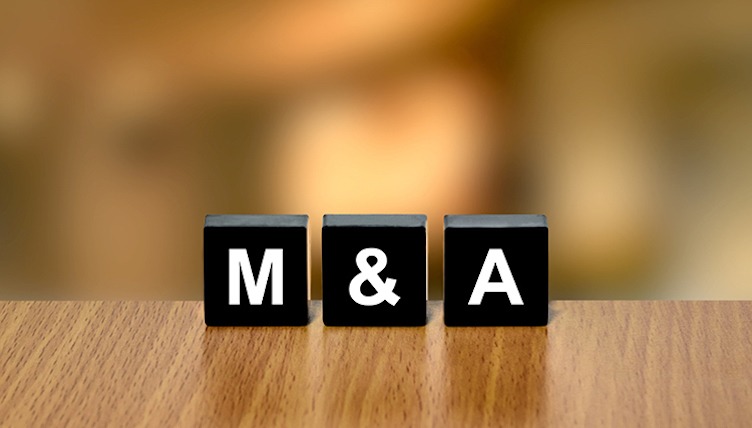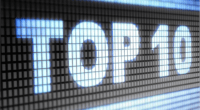J&J’s $30-Billion Buy of Actelion: What Does It Mean for J&J?
Johnson & Johnson (J&J) has completed its $30-billion acquisition of the Swiss pharmaceutical company, Actelion. So what is the impact for J&J?
The move provides J&J with a specialist in pulmonary arterial hypertension with a $1-billion plus franchise as J&J seeks to add assets to offset generic competition for its top-selling pharmaceutical, Remicade (infliximab). So what may be in store for J&J’s pharmaceutical business? DCAT Value Chain Insights takes an inside look.
Inside the deal
J&J completed its previously announced acquisition of Actelion, a Swiss pharmaceutical company specializing in products for treating pulmonary arterial hypertension, for a total purchase price of approximately $30 billion. The acquisition was completed through an all-cash public tender offer by J&J’s Swiss subsidiary, Janssen Holding GmbH, to acquire all publicly held shares of Actelion Ltd for $280 per share, payable in US dollars. Actelion will now become part of the Janssen Pharmaceutical Companies of Johnson & Johnson.
In connection with the completion of the public tender offer, Actelion has spun off its drug-discovery operations and early-stage clinical development assets into a newly created Swiss biopharmaceutical company, Idorsia Ltd. A subsidiary of J&J will initially hold 9.9% of the shares of Idorsia and, subject to certain limitations, will have the right to an additional 22.1% of Idorsia’s outstanding equity through a convertible note. A subsidiary of J&J also has an option on ACT-132577, a compound in development for resistant hypertension for which the Phase II clinical results were recently announced.
J&J expects the acquisition of Actelion to add approximately $1.3 billion in sales for 2017. Actelion specializes in the field of pulmonary arterial hypertension, a chronic disorder characterized by abnormally high blood pressure in the arteries between the heart and lungs. The pulmonary arterial hypertension franchise leads Actelion’s product sales and encompasses oral, inhaled, and intravenous formulations of compounds for patients at various stages of the disease. It also has several drugs for treating specialist diseases, including Type 1 Gaucher disease, Niemann-Pick type C disease, digital ulcers in patients suffering from systemic sclerosis, and mycosis fungoides in patients with cutaneous T-cell lymphoma. The company was founded in 1997 and has more than 2,400 employees covering key markets around the world, including in Europe, the US, Japan, China, Russia, and Mexico.
Led by its pulmonary arterial hypertension franchise, Actelion had 2016 product sales of CHF 2.41 billion ($2.47 billion). Actelion’s pulmonary arterial hypertension franchise sales were driven by its top-selling product, Tracleer (bosentan), an orally available endothelin receptor antagonist for treating pulmonary arterial hypertension, which posted 2016 sales of CHF 1.02 billion ($1.05 billion). Sales of Tracleer decreased 18% at constant exchange rates in 2016 compared to 2015, driven to a large extent by volume erosion resulting from the uptake of Actelion’s next-generation pulmonary arterial hypertension product, Opsumit (macitentan), on the Tracleer patient base and increased generic competition, notably in Spain, where generic bosentan entered the market in January 2016. Opsumit posted 2016 sales of CHF 831 million ($853 million). Actelion’s pulmonary arterial hypertension franchise also includes Uptravi (selexipag) with 2016 sales of CHF 245 million ($252 million) as well as Veletri (epoprostenol), and Ventavis (iloprost).
Actelion’s other marketed products include Valchlor (mechlorethamine), for treating Stage IA and IB mycosis fungoides-type cutaneous T-cell lymphoma, and Zavesca (miglustat), for treating mild to moderate type I Gaucher disease. Pipeline products include ponesimod, a sphingosine-1-phosphate receptor 1 receptor modulator in Phase III development for treating multiple sclerosis, and cadazolid, an antibiotic in Phase III development for treating Clostridium difficile-associated diarrhea.
Inside J&J’s pharmaceutical business
For J&J, the acquisition of Actelion adds a rare-disease focus to the company’s pharmaceutical business, which posted 2016 sales of $33.4 billion. The Actelion acquisition adds a sixth therapeutic focus to J&J. J &J is now focused on five therapeutic areas: immunology (e.g., rheumatoid arthritis, inflammatory bowel disease, and psoriasis); infectious diseases and vaccines (e.g., HIV, hepatitis, respiratory infections, and tuberculosis), neuroscience (e.g., Alzheimer’s disease, mood disorders, and schizophrenia), oncology (e.g., prostate cancer, hematologic malignancies, and lung cancer), and cardiovascular and metabolic diseases (e.g., thrombosis and diabetes).
Immunology is J&J’s largest therapeutic franchise with 2016 sales of $11.97 billion, and it is in this franchise that it faces generic competition for its top-selling product, Remicade (infliximab), an anti-inflammatory drug. Remicade posted 2016 sales of $6.97 billion and is facing biosimilar competition in certain markets outside the US and pending competition in the US. Other key drugs in its immunology franchise are: Stelara (ustekinumab), a drug to treat plaque psoriasis, psoriatic arthritis and Crohn’s disease, with 2016 sales of $3.23 billion and Simponi/Simponi Aria (golimumab), a drug to treat rheumatoid arthritis, psoriatic arthritis, ankylosing spondylitis, and ulcerative colitis, with 2016 sales of $1.74 billion.
The company’s next largest franchise is cardiovascular, which posted sales in 2016 of $6.40 billion, followed by neuroscience with total product sales of $6.09 billion. Oncology products tallied sales of $5.81 billion in 2016, and infectious disease products sales in 2016 were $3.21 billion.
Within these franchises, the company has several blockbuster drugs (sales in excess of $1 billion). In its cardiovascular franchise, key performers are: Xarelto (rivaroxaban), a blood thinner, with 2016 sales of $2.29 billion; Invokana/Invokamet (canagliflozin), a drug to treat Type II diabetes, with 2016 sales of $1.41 billion; and Procrit/Eprex (epoetin alfa), a drug to treat chemotherapy-induced anemia or anemia from chronic kidney disease, with sales of $1.10 billion. The top drug in the company’s neuroscience franchise is Invega Sustenna/Xeplion/Invega Trinza (paliperidone palmitate), an antipsychotic, with 2016 sales of $2.21 billion.
In oncology, key drugs are: Velcade (bortezomib), a drug to treat multiple myeloma with 2016 sales of $1.22 billion; Zytiga (abiraterone), a hormone-based chemotherapy, with sales of $2.26 billion; and Imbruvica (ibrutinib), a drug for treating chronic lymphocytic leukemia, small lymphocytic lymphoma, Waldenström’s macroglobulinemia, mantle cell lymphoma, and marginal zone lymphoma with 2016 sales of $1.25 billion. In infectious disease, the key performer is Prezista/Prezcobix/Rexolasta (darunavir/cobicistat), an HIV treatment, which posted sales of $1.85 billion in 2016.








